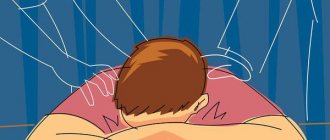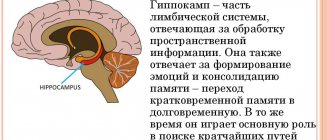The behavior of people with dependent personality disorder is determined by their constitutional anomaly: they passively agree with the wishes of others and poorly respond to the challenges of everyday life. Decreased activity may extend to intellectual or emotional areas. In most cases, individuals with dependent personality disorder tend to shift responsibility to others.
Such people feel a constant need to be taken care of and make decisions, they quickly become attached to others, and are prone to submission.
General information
Asthenic psychopathy is an outdated name for dependent personality disorder, which is characterized by an increased sense of helplessness.
People with the asthenic type of psychopathy are prone to passive consent, constantly feel incompetent and unviable, especially if there is no support from loved ones and relatives, and they often need it like air. They are characterized by a desire to survive at the expense of others, as well as a persistent excessive need for care and fear of abandonment. The International Classification of Diseases, Tenth Revision (ICD-10) assigned the code F60.7 and the name “Dependent Personality Disorder.” It is defined as a psychological disorder, expressed in the form of fear of loneliness, deep passive consent and submission to everyone around, especially if you need to make decisions and determine life goals. Patients are characterized by low activity - intellectual and emotional, a tendency to shift responsibility to others, and a weak response to the demands and standards of everyday life. There are dependent personality disorder, in addition to asthenic - inadequate, passive and self-suppressive.
It was previously believed that dependent personality disorder affects approximately 2% of the population and is more common among women. Classic examples are the wives of tyrants and alcoholics, but in the modern world it has become clear that both sexes are equally susceptible to this disease.
The essence of the disorder
Dependent disorder is a personality disorder in which a person believes in his own helplessness and weakness. “I can never do anything well” and “I never succeed in anything” are the two main mental attitudes of a person with a dependent disorder. An alternative name for the disorder is asthenic (from the Greek “powerlessness”) psychopathy.
Asthenics do not recognize their achievements, consider themselves incompetent and worthless. Moreover, they can achieve success, but attribute it to someone else. Devaluation of oneself and one’s merits is the main feature of asthenics.
As the name suggests, such people are prone to addictions, especially psychological and in relationships. They have a strong need for intimacy. But in relationships they take the position of a victim, easily shifting all the responsibility and all the laurels to the partner. For the sake of recognition and support from asthenics, they are ready to humiliate themselves, agree with others, while actually disagreeing, and downplay their abilities and capabilities. Asthenics are capable of long-term relationships, but the nature of the relationship can only be dependent.
An anxiety disorder often develops as a result of an addictive disorder. In addition, asthenics are prone to panic in situations of uncertainty, for example, when changing their place of residence or changing their usual living conditions, changing responsibilities at work (although more often such people do not work and are financially dependent on a partner), criticism from others.
Asthenic psychopathy is often complicated by psychosomatic diseases and addictions. Fear of independent life forces a person to look for options for escaping reality (alcoholism, drug addiction, taking medications, overeating, smoking).
Pathogenesis
To be somewhat dependent on family and friends is part of not only human existence, but also that of many other living beings. Every day we need to make decisions, trust and confide, take into account the opinions of not only friends, but also strangers, so it is logical that addiction has become an everyday aspect of social interaction, but when it goes beyond the bounds of reason, clinical psychology identifies such a condition as dependent mental disorder . Previously, it was considered as an inability to respond effectively when receiving emotional, social, intellectual and physical stimuli against the background of maladaptation, incompetence, indiscretion, social instability, most often in people with insufficient physical and emotional endurance.
The first signs of a mental disorder may appear at a young age. Such boys and girls are sensitive and impressionable, feel an excessive need for care from family and friends, and are prone to dependency and inefficiency. This stimulates their development of excessive submissiveness and a tendency to become attached due to the risk of losing material support, separation, or the fear of abandonment. The attachment pattern develops on the basis of anxiety and dependence, especially manifested in conditions of the threat of being abandoned and becoming indifferent to a significant, supportive and closest person, for example, a parent, spouse, friend, etc.
In addition to dependence on others, rejection of a submissive person leads to a loss of trust and a decrease in self-esteem, which exacerbates the feeling of helplessness and inability to autonomy, stimulates the development of phobias and panic attacks . The main solution to problems is to find a loved one who will take care and take responsibility for all decisions, but this only worsens the situation, since the patient does not receive the skills and experience for independence and is even more afraid of losing an important person.
Signs
Close relationships of asthenics are always codependent in nature. In the event of the loss of a partner, asthenics try to quickly find a new source of care and support. If their searches are unsuccessful, they become depressed.
Signs of an addictive disorder include:
- life passivity;
- timidity and humility;
- unconditional submission to other people;
- fear of loneliness;
- low self-esteem;
- lack of independence;
- obsession;
- constant need for support;
- conviction of one's own incompetence and incapacity;
- anxiety associated with fear of loneliness (doubts about love, reciprocity, understanding, etc.);
- fear of being abandoned due to rebellion, disagreement, defending one’s interests and needs.
People with addictive disorder cannot even take a step without someone's support, start a new business without outside advice, or even decide on their own what kind of sweater to wear. They are literally dependent on other people’s opinions, live other people’s lives, put their fate in the hands of other people (parents or a partner decide for the asthenic person who to be friends with, what to do and where to live). By playing the role of a subordinate, they find dominant people. More often this ends with the use of asthenics for their own purposes, sometimes with violence.
Some individuals with dependent disorder begin to realize the problematic and inappropriate nature of their behavior, but it is impossible to change their thinking on their own. Because of this awareness, self-esteem drops even more, and there is a feeling of confusion and helplessness.
In some cases, dependent thinking turns into overcompensation, which is reflected by a tendency to dominate. This is necessary in order to hide your weakness and dependence. Actually, more often for codependent relationships, asthenics without overcompensation find asthenics with overcompensation.
Causes
Psychological factors contribute to the development of dependent personality disorder - childhood trauma, genetic predisposition to anxiety disorders , upbringing errors and an environment that provides all material benefits and all-encompassing care. This applies to a greater extent to persons who have reached the age of majority and remain to live with their parents. The main causes of psychopathy are considered to be:
- excessive indulgence;
- development of phobias, for example, being abandoned, losing a job, etc.;
- psychological deprivation in childhood up to about one year of age (lack of opportunity to meet vital needs);
- strong narcissistic partner.
Dependent personality disorder
Dependent personality disorder (dependent personality disorder, subordinate personality disorder, asthenic personality disorder, asthenic psychopathy) is a disorder characterized by an increased feeling of helplessness, incompetence, and inability to live without the support of other people. Support is constantly needed. Patients with a psychasthenic disposition have the following personality traits:
- He is afraid of everything - not only real danger, but also that which exists only in his imagination; not only what he should be afraid of, but also what he simply does not know.
- Every new, unfamiliar thing, every initiative for him is a source of torment; if there is no extreme or external pressure, a psychasthenic will never dare to start anything new on his own.
- It is extremely difficult to make one or another decision even when it comes to the most insignificant circumstances.
- Even having decided on something, having already begun to act, the psychasthenic all the time doubts whether he is doing so, or whether he did what he wanted; these eternal doubts, constant control of one’s actions make work both slow and painful.
- Doubts about the correctness of what was done force the psychasthenic to redo again what he just did.
- Distrust in oneself, in one’s own strengths, forces one to turn to others either for help, or at least to be reassured, to be told that there is absolutely no reason to worry or worry.
Accordingly, patients with dependent personality disorder feel well only when under the care of a strong and wealthy person. Considering themselves helpless, they try to become attached to a partner who will provide them with the means to survive and be happy.
Individuals with submissive personality disorders are truly unable to act independently. Therefore, they delegate responsibility for resolving issues in vital areas to others: what should be done is decided by the partner. The prospect of giving up the dependent position causes extreme fear or guilt. Fear of independence keeps the patient in a regressive position of a subordinate.
The reason for such a violation may be a sudden break with the mother, when the child was unable to satisfy the need for maternal care and love. Many individuals with dependent disorder seem unable to move away from their childhood attachments and cling to others, seeing them as substitutes for the parents with whom they felt safe. Table 1 reveals the psychological characteristics of people with dependent personality disorder in terms of their ideas about themselves, about others, their emotions, basic beliefs, and behavioral strategies. Table 1
| Direction | Characteristic |
| Self-image | They feel needy, weak, helpless, incompetent. |
| Beliefs about others | They idealize the image of a strong “guardian,” perceiving him as caring, supportive, and competent. As long as a strong person is nearby, a dependent person can exist quite successfully. |
| Beliefs | “I need other people, namely a strong person, to stay alive.” We are sure that their happiness depends on the presence of such a person nearby. They believe that they need a steady, continuous flow of support and encouragement. One dependent patient expressed: “I can’t live without a man,” “I can’t be happy if they don’t love me.” Deep Beliefs: “I am absolutely helpless,” “I am completely alone.” Conditional Beliefs: “I can only live a normal life if I have someone competent next to me,” “If I am abandoned, I will die,” “If I am not loved, I will always be unhappy.” Action-level beliefs: “Don’t hurt your caregiver,” “Stay close to him or her,” “Maintain as close a relationship as possible,” “Be dependent to tie him or her down.” |
| Threat | The main trauma is related to rejection or abandonment. |
| Emotions | The main emotional state is anxiety about a possible break in a dependent relationship. Periodically experience severe anxiety when they feel that the relationship is really tense. If the person they depend on disappears, they may become depressed. They experience joy and euphoria when their desires associated with addiction are satisfied. |
| Behavior strategy | The main strategy is to cultivate dependent relationships. They obey the “strong” person, calm him down, please him. |
Asthenic psychopathy is manifested by weakness, fatigue, and lack of initiative. At work, such individuals quickly become tired, attention is impaired, and performance decreases. They are completely unable to withstand any long-term loads. When tired, they become capricious and irritable. Any unpleasant event spoils their mood for a long time. A change in lifestyle often causes a persistent imbalance in their body.
A typical psychological defense mechanism is avoidance. The desire for a career, material well-being, and self-realization is met with a lack of strength and rapid exhaustion. This gives rise to intrapersonal conflict. Therefore, dependent personality disorders are accompanied by neurasthenia and depression.
Symptoms of Dependent Personality Disorder
Symptoms of asthenic psychopathy are primarily associated with a dependent position, the desire to shift responsibility to others, the fear of abandonment and a tendency to submit. They are expressed in the form of reactions such as:
- increased anxiety ;
- frequent panic attacks;
- diffidence;
- passivity and suggestibility;
- modesty and uncertainty;
- excessive obedience and excessive gullibility;
- tendency to alcoholism , smoking and abuse of other psychoactive substances, as a way to avoid problems and life difficulties;
- anxious-apathetic depressive mood;
- gluttony;
- avoidance – phobic avoidance of responsibility.
In addition, somatic symptoms can begin with conversion disorders and develop into hypochondria and somatization, for example, leading to benign tumors, hypertension or stomach ulcers . This may be a manifestation of a passive-dependent pattern in the form of an immature reaction to receive increased attention from doctors and family.
What are personality disorders?
Your personality is your unique way of thinking, understanding, reacting and relating to people. Many people may seem like extraordinary individuals. But they are believed to have a personality disorder
, only if their identity is:
- Causes serious problems at work or school.
- Does not allow them to behave normally towards others.
- It is not something they can change or correct, even if it causes problems.
People with personality disorders usually think that there is nothing wrong with them. They may be upset by the consequences of their personality disorder, such as divorce or job loss. However, they usually believe that these problems are the fault of others rather than themselves. Other people usually have difficulty communicating with a person who has a personality disorder.
Many people with a personality disorder also have other problems, such as:
- Depression
Tests and diagnostics
The diagnosis of asthenic psychopathy can be made by a psychoanalyst after a thorough study of the clinical picture and symptoms, medical history and daily observations of the patient’s reactions and behavior. To determine the dependent type of personality disorder in a patient, it is necessary to identify compliance with general and specific diagnostic criteria (3 or more) of the WHO, which are defined as:
- the need to dissolve in someone, to shift responsibility for making important decisions to someone else;
- tendency to submission, excessive obedience and neglect of one’s own needs in comparison with the desires of others, manifestation of high compliance to submission;
- complexity or lack of claims and requirements for persons on whom the patient depends;
- Depressive thoughts, discomfort, ineffectiveness and helplessness - usually caused by the fear of being alone and not coping with independent adult life;
- the constant experience of being abandoned by people with whom close ties have been established, because in such a situation you will have to be left only to yourself;
- the need for encouragement and advice when making decisions, even in everyday life;
- in addition, there may be a constant presence of feelings of helplessness, incompetence, and weak vitality.
According to the criteria of the Diagnostic and Statistical Manual of Mental Disorders, fifth revision (DSM-5), the diagnosis of asthenic psychopathy is confirmed if it is possible to find compliance with the 3 points listed below:
- there are difficulties with making everyday decisions, especially if you have not received a lot of advice and approval;
- the patient gives preference to an environment that can and will take responsibility for his life;
- there is a fear of expressing protest and disagreement due to fear of losing material support and approval;
- lack of initiative and difficulties in performing independent activities;
- the desire to receive care and support from other people and even the willingness to perform unpleasant, unethical and irrational actions for this;
- exaggerated fear of performing independent actions and fear of abandonment;
- during a breakup, patients experience an urgent need to find new connections that can provide support and help make decisions;
- a large number of phobias and anxiety about criticism and disapproval.
Treatment
Psychotherapy is used for treatment purposes. Drug treatment is used to correct complications.
Psychotherapy is aimed at correcting self-esteem, restoring self-confidence, restoring self-worth, and developing decision-making skills. During therapy, it is important to ensure that the client does not become dependent, therefore sessions should be held rarely, and if necessary, take long breaks. A mandatory element of therapy is support, which further increases the risk of a dependent relationship with the doctor. The best option is group psychotherapy.
Group classes allow participants with the same problems to support each other. They find themselves on equal terms, which also has a beneficial effect on the treatment process; participants learn to take responsibility, interact in relationships, and not obey.
Behavior correction has a positive effect on:
- assertive techniques (polite refusals, asserting independence);
- honing social skills in a group;
- playing out situations and learning to solve problems;
- goal setting training;
- development of self-confidence and self-efficacy.
To correct the behavior of an asthenic person, it is necessary to form in him an adequate perception of himself, self-love, and teach him to perceive loneliness as solitude. You need to change the attitude “to be happy, I need people” to realizing yourself as an integral and independent person who does not need additions.
Codependent relationships, in which asthenics usually find themselves, are a stumbling block for successful therapy. Separation from a dominant partner is the most painful part of rehabilitation. If there is a need to interrupt therapy sessions (the doctor is immersed in the role of a rescuer), then regression of the asthenic’s behavior is more often observed.
In children
The first signs of a predisposition to psychopathy in school-age children are the development of asthenic traits:
- sudden fatigue at the end of lessons;
- excessive timidity, indecision and shyness;
- expressed feelings of inferiority.
Attention! To avoid problems in the future, it is recommended to show a child with similar problems to a psychologist who will help to understand the root causes of dependent orientation.
How many people have a personality disorder?
Personality disorders are common mental health problems around the world.
It is estimated that approximately one in 20 people have a personality disorder. However, many people have only minor changes, which often only become apparent during times of stress (such as bereavement). Other people, with more serious problems, will need specialist help for a long time.
Prognosis of the course of personality disorder
Most people who receive treatment recover from their personality disorder over time.
Psychotherapeutic or medical treatments provide significant relief and can often be recommended even for people with mild personality disorders as a form of support. This depends on the severity of the disease, and on the presence of other ongoing problems. Some people with mild to moderate personality disorder benefit from specific psychotherapy, which is very helpful.
However, there is no single approach or any unified psychotherapeutic techniques that could suit everyone, so treatment must be selected taking into account the individual characteristics of personality development. It is very important that therapy for personality disorders is carried out by a qualified psychotherapist.
Diet for dependent personality disorder
Vitamin-protein diet
- Efficiency: 5 kg in 7-10 days
- Terms: up to 14 days
- Cost of products: 1700-1800 rubles. in Week
The main task of a dependent person in choosing a diet is to independently develop a menu, taking into account individual needs and preferences - one should not give up favorite foods or, on the contrary, pass them on to please loved ones. You can try any balanced, rational diet and, for example, sign up for Pilates or swimming, depending on what you feel like. It is important to understand that the human body is an autonomous, unique unit with its own preferences and characteristics. Every day you need healthy sleep, physical activity, as well as a complete diet, including not only proteins and carbohydrates, but also healthy fats and vitamins. For this, it is best to give preference to such products as:
- fresh colorful fruits and vegetables, which just by their appearance already lift your spirits, there is a wide variety of them and everyone can find their favorites;
- herbs and spices, stimulating appetite and tonic;
- “healthy” food processing - stewing with unrefined oils, baking, boiling and steaming;
- cereals and legumes are the basis of a healthy diet, capable of providing the body with microelements, vegetable proteins and complex carbohydrates;
- dietary meats;
- healthy drinks - natural teas, herbal infusions, compotes and freshly squeezed juices;
- nuts, seeds, seafood containing large amounts of healthy fats.
It is best to give up white sugar and flour, which, like simple carbohydrates and empty calories, are very easily digested and cause addiction. Excessive caffeine can also increase irritability and nervousness.
A look from the inside
Hysterical psychopaths are very trusting, suggestible, and are easily drawn into deception. Often they do not have their own opinion, giving in to someone else’s. They easily get involved in adventures. Endowed with a rich imagination, it is difficult for them to separate reality from fantasy, so they are often accused of lying.
People with hysterical disorder do not like to work, especially where high professionalism, refined skills and perseverance and effort are required.
The woman, in her words, developed a tremor (trembling) throughout her body, her legs gave way, her tongue fell out, she mumbled and growled, and there was a short-term loss of consciousness while working in the garden. The reason, in her opinion, was fatigue and overwork.
Such individuals choose easy, uncomplicated work. They love to attend social events and talk about beauty. They prefer a hedonistic lifestyle, seeking to gain benefits and pleasure.
There is an opinion about hysterical psychopaths as immature, frivolous, “empty” individuals.
The thinking of a patient with histrionic disorder is called “wishful thinking,” known as wishful thinking. His mental activity is driven by his own desires. They take over the mind so much that they can distort thoughts so that they do not correspond to reality. In other words, everything that goes against what he wants is ignored. Everything he wants is correct, the rest is complete delusion, incorrect, insignificant.
People with hysterical disorder love to extol themselves and exaggerate their merits. They try to appear super-erudite and gifted, using a few simple pieces of knowledge. They boast about meeting famous people.
The Russian poetess Zinaida Gippius, the decadent Madonna as her contemporaries called her, suffered from this disorder. “I love myself like God,” says Zinaida Nikolaevna in one of her poems called “Dedicated.”
The poetess expressed her desire to amaze and conquer in everything. She put on such bright, expressive makeup that her face looked like a mask. It looked very unnatural and atypical for the late 19th century. Gippius' movements were affected by mannerism and absurdity. She was ready to go to any lengths to attract attention and admiring glances.
Having been married for 10 years, Zinaida Nikolaevna remained a virgin, which she flaunted at every opportunity. She considered herself bisexual: “in my spirit I am more of a man, in my body I am more of a woman.” Some contemporaries considered her a hermaphrodite.
Hysterical individuals with pathological fantasies are dangerous to society. They make excellent swindlers, healers, and fortune tellers. At a young age, they are so immersed in their fantasies that they invent non-existent situations: how they developed secret weapons, carried out complex operations, are able to confess to a murder they did not commit.










